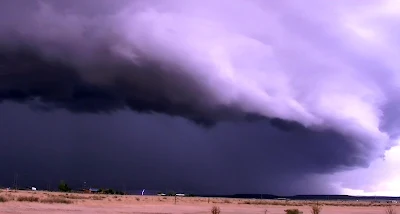Would You Be Ready to Survive?
 |
| Learn how to be ready for man made or natural disasters. |
The world is an uncertain place where many things can and will happen. Mother Nature has many tools to tell her children they are out of hand. Blizzards, earthquakes, hurricanes, tornadoes, pandemic diseases, and other natural disasters time and again have brought power outages, shortages of food and water, and devastation to many. Humans with each their own agenda, have their own disastrous tools, bringing devastation with the use of chemical and biochemical warfare, war, civil-unrest, food and water contamination , and an overabundance of other man-made disasters.
In fact disasters, either natural or man-made, occur somewhere around the world each month of the year, and typically there are several disasters occurring per month. This makes a very good probability that at least once in your lifetime you will experience some sort of disaster. Being a 'prepper', knowing the emergency essentials, and having emergency preparedness skills, communications plans for emergency situations, bug out bags at the ready, etc. sounds like a wise idea, that’s not just for the survivalist type, right? So, if a disaster were to strike, would you be prepared?
There is quite a bit of disaster preparedness information that regards specifically to survival supplies such as the bug out bag, emergency food storage, emergency checklists, plus all the different types of emergency preparedness plans such as an evacuation plan, communication plan, etc. that every 'prepper' should, have in order to be ready for an emergency. I do plan on covering all the disaster preparedness information in some future articles; however, this one will just cover the information that you should know before you start making your disaster plans. As there is a lot of disaster preparedness information to cover, I decided to break it up as to not overwhelm you readers. Don't worry, I won't turn you into a 'crazy survivalist', just a wise, and well prepared 'prepper'.
Information Is Vital to Survival
Staying up to date with current events, as well as talking with emergency response experts to gain their advice and expertise in disasterous situations is vital information to have in the event of a disaster. Some other vital information you will need to survive in the event of a disaster is a map of your area so that you know where fresh water sources are. Also, I advise to take a basic course in first aid at the very least as you never know when some medical know how will come in handy in the event of an emergency.
Survival Requires You to Be Self Reliant
Yes, the Federal Emergency Management Agency (FEMA), Community Emergency Response Team (CERT), Police, Fire, Rescue, and other various government disaster relief groups were designed to help in the time of a disaster, but “THEY” may have obstacles delaying their disaster response. The size of the area affected by a disaster, loss of communications, road conditions, and severity of the emergency may not only delay disaster relief groups but also divert their disaster response efforts elsewhere, leaving you to rely on yourself. The worst-case scenario is “THEY” didn’t get to you in time.
The effects of a disaster can last much longer than the event itself, creating a possibly deadly situation, disaster preparedness is what will increase your survival time in that event.
However, there is more to being self-reliant than having a well-rehearsed set of disaster plans, you need to be self reliant wherever you may be. The only way of being self reliant where ever you may be is to have on hand supplies. A disaster is not going say: “Oh, you’re not ready, you have no supplies to help you survive while I’m bringing devastation to your town, I’ll just wait for you to get to your supplies before I strike so that you are ready for my devastation.” Did you know that simply carrying around a bottle of water provides you with a few more days to survive during a disastrous event then someone who only has food on hand? Water is a vital necessity for your body and mind to function properly, and in a survival situation you’re going to want your body and mind functioning as properly as possible.
The American Red Cross, as well as FEMA, and Ready.gov all recommend having emergency kits that you can have on hand filled with enough survival supplies to sustain you through an emergency or disaster for 72 hours. These 72 hour survival kits, often referred to as a ‘Bug out bag’ or ‘Go bag’ are a key to being self-reliant. Without some handy survival supplies to go with your well-rehearsed set of disaster plans, any disaster preparedness information will be rendered useless.
Having a kit filled with enough supplies to sustain you through an emergency or disaster for 24 to 72 hours that you can have on hand is a great tool to increase your survival time. There is a "Go bag / Bug Out bag (BOB) / EVAC bag / Get Out of Dodge bag (Good bag) (call it what you like) that you can buy pre-filled with basic supplies to sustain you through an emergency such as a natural disaster for 72 hours. If you’d rather carry around fewer supplies, a Get Home Bag that will sustain you for a minimum of 24 hours is much better than nothing at all in a disastrous situation.
If you don’t have a lot of money you can always build your survival kit over time. Getting a few of the necessities at first then adding little by little each time you have a little extra cash will help you through natural disasters a lot more than having nothing at all. You can find out more about 72-hour survival kits like the bug out bag in my article Disaster Planning: The Bug Out Bag What, Where, When, Why, and How.
Be Adaptable, You Never Know What Will Happen During and After A Disastrous Event
Do you recall the statement at the beginning...'the world is an uncertain place where many things can and will happen'? I wasn't just saying that because I'm a 'glass is half empty' type of person. We’ve all heard Murphy’s law entitled “Expect the unexpected.” With that in mind, we should then expect that anything can happen during and after disasterous situations, maybe even things that may seem totally off the wall bat crazy, but even if it is, you got to be ready for it.
Expecting the unexpected is another vital component needed to make a reliable set of disaster plans. For that reason, when you are disaster planning you will want to make sure that your disaster preparations are adaptable. I have more disaster preparedness information and some great tips on how to make your emergency plans more adaptable in my article Disaster Planning: Creating Perfect Plans. When your emergency plans are adaptable, they will be more able to accommodate the disaster you are experiencing, and your survival will be more likely.
You Don't Have to Be a Millionaire to Survive
Many believe you have to be a millionaire and have loads of cash to prepare for natural and man-made disasters. I know I’ve mentioned how you need food storage, a fresh clean water supply, bug out bag, etc., and the other disaster preparedness information you come across,from government emergency response experts all say the same. However, I can tell you from experience of living a paycheck-to-paycheck lifestyle, you don’t need to have a ton of money to be a 'prepper’.
In case you have not had the opportunity to be on board the millionaire boat, it is nice to know that you can still prepare for surviving a disaster and all that is needed is just a little more brain power and time put into your emergency preparedness plans and survival kits. Of course, a million dollars would help purchase items that may make life a little easier in the event of a disaster, but having a lot of money is not an absolute necessity when making your disaster plan or even when purchasing all the necessities such as fresh clean water and food for your emergency food storage.
In fact, because food is perishable, it is recommended that you start out with enough emergency food to last at least 72 hours, then build onto your emergency food storage each time you shop for groceries. I managed to obtain supplies needed to prepare for surviving man-made and natural disasters. So, you too, can prepare for surviving a natural or man-made disaster without having loads of cash. Planning for a disaster on a budget can be a bit tricky, but having a disaster strike when you are not prepared can make survival even trickier, maybe even impossible.
Now you are ready to start making your emergency plans, and I believe I’ve taken all your excuses for stalling any longer, so go get started disaster planning and preparing, as the sooner you start, the more well prepared, 'prepper' you will be.
Author Note:
I originally published this article on HubPages in 2010, but I decided it would probably help more people here. I will be moving the other articles I have in regards to emergency planning over here soon. I hope you find it useful.

Comments
Post a Comment
To try to prevent bot spam I hope you don't mind doing the captcha. Thanks for your comment!